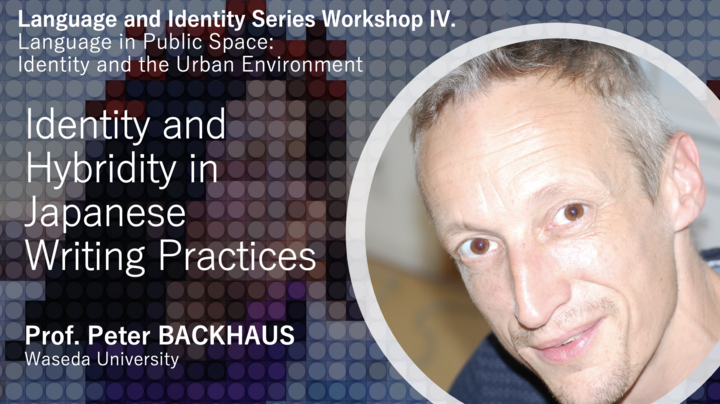Foreign Elements: Identity and Hybridity in Japanese Writing Practices (Lecture by Prof. Peter BACKHAUS)

| Date(s) | Monday, 29 May 2023, 3:00 - 4:00 pm (JST) |
|---|---|
| Venue |
Zoom Webinar (Register) |
| Registration | Pre-registration required |
| Language | English (with Japanese simultaneous interpretation) |
| Abstract |
This talk deals with two interrelated phenomena in Japanese writing practices. The first one, which I will refer to as “the foreign within Japanese,” is about the integration of loanwords into the Japanese writing system. As I will show, this development has not only resulted in a significant extension of possible katakana combinations (e.g., パーティー), but also entailed other script choice options, most notably loanwords in hiragana (ぱーてぃ) and, perhaps obviously, loanwords unaltered in roman alphabet (“Party”). The second practice is the romanization of Japanese vocabulary, a phenomenon I will call “Japanese within the foreign.” Apart from the two major systems, Kunrei and Hepburn, it is becoming increasingly popular to apply rules derived from neither system, but modelled after English orthographic principles. Particularly in the commercial domain, examples such as the replacement of “k” by “c” (“cocoro” for kokoro) or the deletion of silent vowels (“alc” for aruku) are now a common sight. I will argue that the two phenomena described here are in fact complementary, contributing to an ever increasing hybridity that keeps pushing the boundaries between language and script, and between what is native and what is foreign. |
| Program |
Lecture: Q&A Moderator |
| Speaker Profile |
Peter Backhaus is Professor at Waseda University, Tokyo. His main research interests are sociolinguistics, pragmatics, and writing and orthography. Publications include Linguistic Landscapes: A Comparative Study of Urban Multilingualism in Tokyo (Multilingual Matters, 2007) and Care Communication: Making a Home in a Japanese Eldercare Facility (Routledge, 2017). He is also a regular contributor to the Japan Times’ “Bilingual” column (https://www.japantimes.co.jp/author/int-peter_backhaus/). |
| Organized by | Tokyo College, the University of Tokyo |
| Contact | tokyo.college.event@tc.u-tokyo.ac.jp |















